(#148) ChatGPT Atlas and the battle for the 'New Interface Layer'; on the 🇪🇺 EU vs. 🇺🇸USA economy
🇩🇪 Germany lost the export war and the Platform Shift
Thank you for being one of the +4,500 minds reading this newsletter
Here is what you’ll find in this edition:
ChatGPT Atlas and the battle for the New Interface Layer
Reddit’s strategic moat is being human in an AI world
Missing AI as a marketing campaign: Apple
🇩🇪 Germany lost the export war and the Platform Shift
on the 🇪🇺 EU vs 🇺🇸USA economy
…and more 👇
Onto the update:
ChatGPT Atlas and the battle for the New Interface Layer
OpenAI’s launch of ChatGPT Atlas represents a clear shift in platform ambition: from model to interface. Up until now, ChatGPT has existed as a layer within someone else’s ecosystem (e.g. Apple, Microsoft, the browser). But with Atlas, OpenAI is trying to own the frame in which that intelligence is used. The browser is a strategic surface area where users spend time, where search starts, and where intent is converted into action. With “agent mode”, OpenAI is turning the browser into an operating system for intent, where the AI acts on your behalf.
The strategic implication here is that OpenAI is moving down the stack, building a native interface layer that can disintermediate both Google (search) and Apple (UI control). This is the exact strategy Apple used against Microsoft with the iphone, that is, not by replacing Windows, but by building a superior, more integrated experience on new hardware. OpenAI is betting that LLMs + interface + memory + agency = a new kind of platform, one where the user’s context is persistent, the actions are intelligent, and the competition is legacy UX. Whether it succeeds or not depends on how many people want their browser to think instead of just render. But if this works, this will evolve from a browser war to a desktop war. OpenAI is building the first AI-native OS. LINK
Reddit’s strategic moat is being human in an AI world
Reddit’s current momentum is a classic example of a company thriving not because of AI, but because it isn’t. In a web increasingly polluted by synthetic content, Reddit’s differentiator is the human signal. Its forums offer grounded, experience-driven answers that users (and LLMs) find more trustworthy than the SEO-choked open internet. That’s why OpenAI, Google, and others are paying to license Reddit’s content. What’s interesting strategically is that Reddit isn’t just selling ads anymore, but is monetizing its core IP, which is authenticity at scale.
But this position is fragile. As AI tools like ChatGPT get better at extracting Reddit’s value without attribution, and as bot-generated content starts creeping into its forums, Reddit risks becoming a victim of its own usefulness. The company is trying to solve this in two ways: (1) first, by reinforcing user experience (e.g., its “Reddit Answers” tool keeps people on-platform), and (2) second, by aggressively defending its content from unauthorized scraping (as seen in its lawsuit against Anthropic). This is the same strategic tension faced by publishers during the Google era who were trying to answer the question “How do you monetize the value you create without being disintermediated by platforms built on top of it”? Reddit’s future will depend on how well it can productize being human, before AI makes that obsolete or worse, indistinguishable. LINK
Missing AI as a marketing campaign: Apple
Yes, the new Mac ad is not anti-AI per se, but it’s Apple staking its ground as the pro-human tech company, and doing it in a very deliberate, strategic way. In classic Apple fashion, the message is implied, that is, Apple isn’t replacing human creativity with AI (unlike others), but is augmenting it.
In a tech world racing toward agentic automation, Apple is making a bet that the future belongs not to the machine that creates for you, but to the person who creates with better tools. The word “AI” barely appears, because Apple prefers “personal intelligence”, “on-device”, “privacy”, and “performance”. They’re not trying to compete with ChatGPT or Midjourney head-on. They’re saying “you stay in control, the machine helps”. It’s a fundamentally different philosophy than OpenAI’s “agents that can do things for you”.
This positioning matters because it reinforces Apple’s moat in the post-AI world: tight hardware-software integration, premium brand trust, and user-aligned design. While everyone else chases the “AI-first” platform, Apple is saying, “we are the tool you already know and trust, but we just got better”. The subtext of the ad is also “you are still the center of the creative universe.” That message lands especially well with Apple’s core users, who are creators, professionals, and people who want empowered agency, not automated substitution. It’s not anti-AI. It’s a pro-augmented human. LINK
🇩🇪 Germany lost the export war and the Platform Shift
This chart tells the story of Germany’s industrial twilight, measured in containers and euros. For two decades, Germany and China danced the perfect export symphony: Germany shipped high-end machines, China sent back cheap goods and growth. But then the music stopped. Since 2022, German exports to China have been in free fall, while imports keep climbing. The small deficit became a national security problem. The supplier became a buyer. Germany, the workshop of the world, got out-platformed.
The root cause? Germany bet on the wrong stack. While the USA and China raced ahead on the next great platforms (e.g. semiconductors, AI, and electrification), Germany doubled down on internal combustion and mechanical precision. But in a world of lithium, software, and modularity, that’s like bringing a typewriter to a cloud conference. China stopped needing German machines to make its EVs. It built its own (of course, with a lot of industrial espionage and knowledge transfer). And now Germany is importing the future it used to engineer. The scary part isn’t just a trade imbalance. It’s a strategic loss of relevance, priced monthly in euros, and compounding. Ouch!
on the 🇪🇺 EU vs 🇺🇸USA economy
David Sacks makes a pretty simple point: GDP is growing at 3.9% in the 🇺🇸USA, AI is driving about 40%* of that, and if you don’t like tech, congratulations, you just halved the future.
And then there’s Europe. Where bureaucrats gather in Brussels to draft legislation that’s three years late, eight layers deep, and accidentally bans innovation while trying to regulate cookies. The EU approach to growth is like trying to bake a cake by auditing the oven. They talk solemnly about 0.5% GDP gains and then revise it down to -0.2% because Italy sneezed and Germany had a vibes-based recession. This is a very expensive group therapy session about deindustrialization.
Meanwhile, the difference between 4% and 2% growth is literally doubling your standard of living every generation versus every two. That means one path gets you AI copilots, abundant energy, and better medicine. The other path gets you nostalgic documentaries about the Concorde and a digital tax on American cloud storage. Growth isn’t a zero-sum game, but misunderstanding growth kind of is. And no one misunderstands it quite like a European commissioner in charge of “digital sovereignty”.
* based on the date I saw, AI drives more than 40% of the total growth in the USA
🚗 🚙 on Uber vs. Waymo
Waymo’s slow, deliberate rollout of self-driving cars reveals the classic pattern of platform disruption: start in niches (commuting, ride-sharing), solve for reliability, and expand from city to city. Much like how Amazon started with books and built the rails of e-commerce, Waymo is turning the mundane commute into the Trojan horse for autonomous adoption. The insight is that users don’t need perfection, just a better experience than Uber for the most routine, high-friction parts of daily life. Put it another way, if driving is a joy, commuting is a tax and Waymo is offering a refund.
This shift also reframes the competitive landscape. Uber built a software layer atop human drivers, optimizing logistics but never touching the cost base of labor. Waymo inverts that model: its marginal costs decline with each ride, each city expansion, each regulatory clearance. In my book, I argued about “thin layers”. In that regard, Uber is a “thin layer” that’s deeply exposed to input costs (drivers, churn, surge pricing), while Waymo is building a thick stack: hardware, software, AI infrastructure, and eventually a consumer brand. The defensibility here comes not just from the tech, but from integration across layers that Uber never owned.
Finally, the Waymo model scales geographically and experientially. Unlike Uber, where expansion means onboarding more humans, Waymo just needs mapping, regulation, and capital (~ $200k per car). As coverage grows, network effects kick in, not via more users, but via denser real-world data, improving the AI engine. And the value prop is privacy, predictability, and autonomy in a literal sense. Like every great platform, Waymo changes what you expect. Uber feels like 2010. Waymo feels like 2030.
[Essay] AI is the ‘Manhattan Project’ of our lives
I still remember the heat, the buzz, and the buzzcut of the guy next to me in line. It was Philadelphia in 2007 and I was there! The original iPhone was about to launch, and the Apple Store had the atmosphere of a rock concert. People were buying a future they did not think could exist. That sleek, glass-and-steel object promised to rearrange everything: how we communicate, work, flirt, and waste time. And it did.
Continue reading it HERE.
Guest speaker at PwC
This week, I was invited to speak at PwC Romania Management’s Day, in front of more than 250 managers and partners. It was a pleasure to share ideas from “The Compressed Decade” - how GenAI is reshaping strategy, productivity, and leadership faster than any technology before it. Thank you to Daniel Anghel, Country Managing Partner at PwC Romania, for the kind invitation and inspiring atmosphere.
We talked about how the world has accelerated: a decade of change condensed into just a few years. The end of free money. Deglobalization. Generative AI giving us “infinite interns and infinite PhDs”. From “follow the compression - idea to prototype to market in days” to “act like a startup, even if you’re not”, the message was related to speed, adaptability, and creativity. These are the new strategies. Also, the AI models are free, but the moats are built at the edge.
As I told the audience, the future of work is deeply linked to prototyping — those who build, test, and iterate will lead. We’re entering a world where every company will be an AI company or won’t be at all. The challenge for leaders is not to manage change, but to outrun it with courage, talent, and emotion as the new distribution.
—
Want to be a speaker at your company/event? Write me at contact@onstrategy.eu




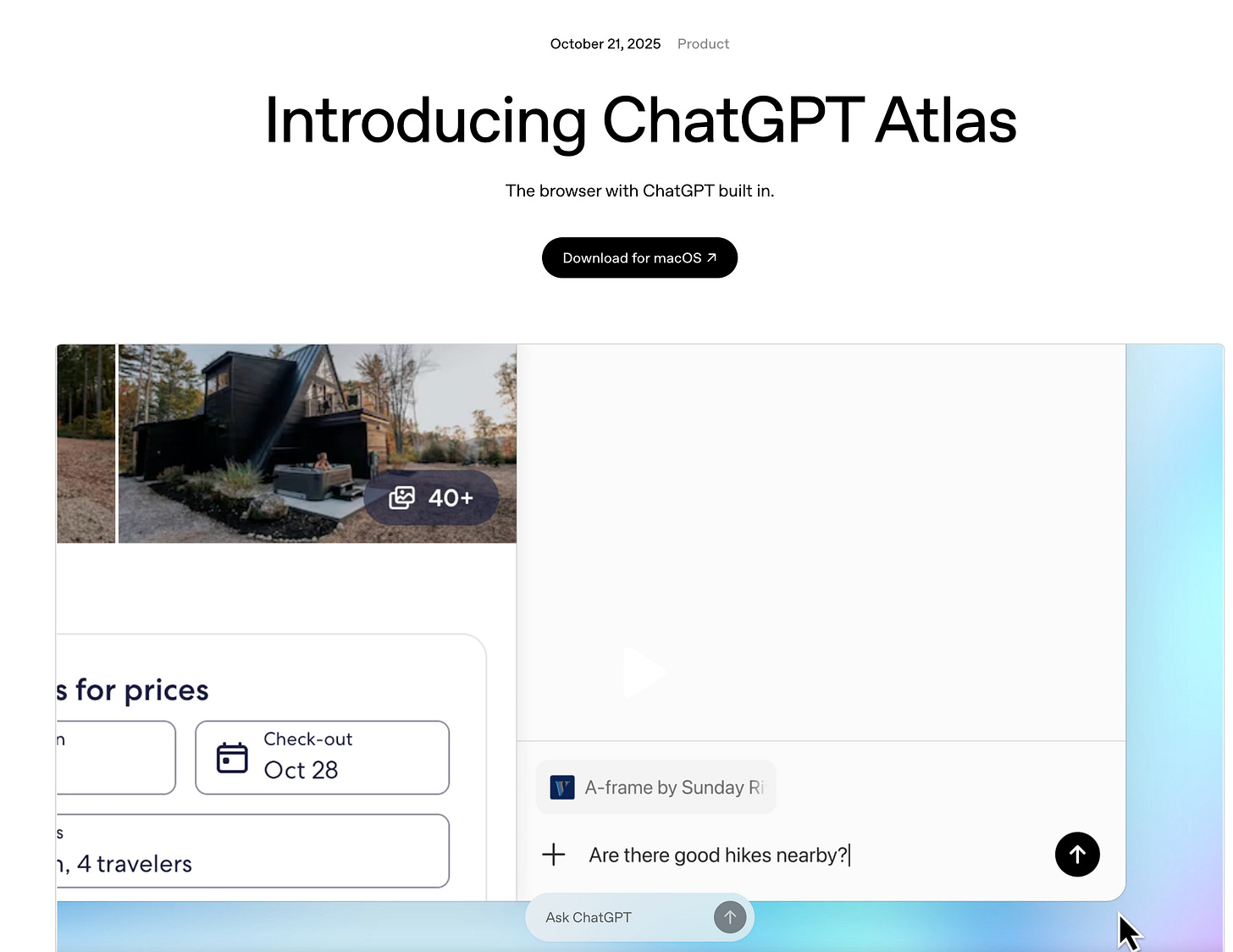
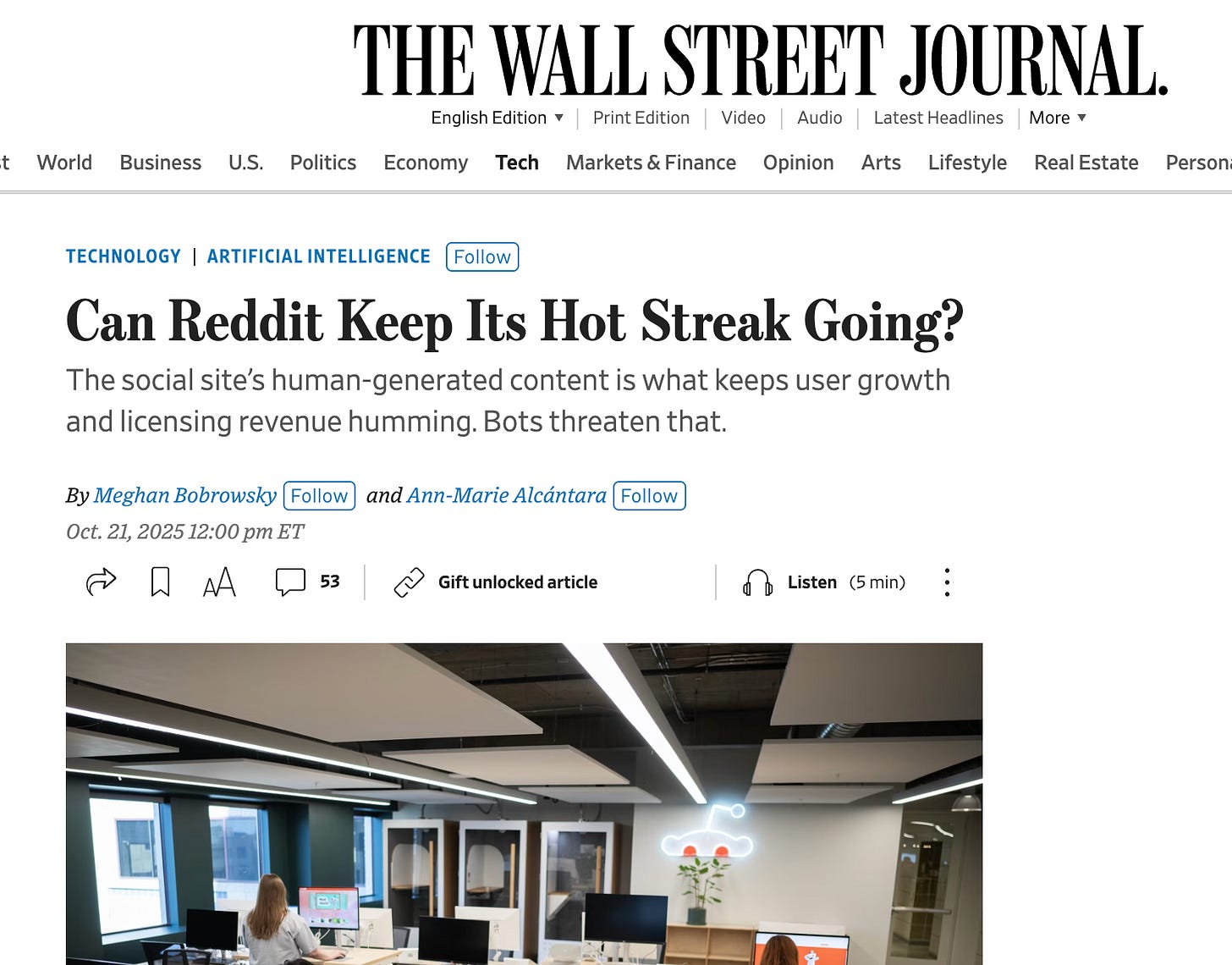
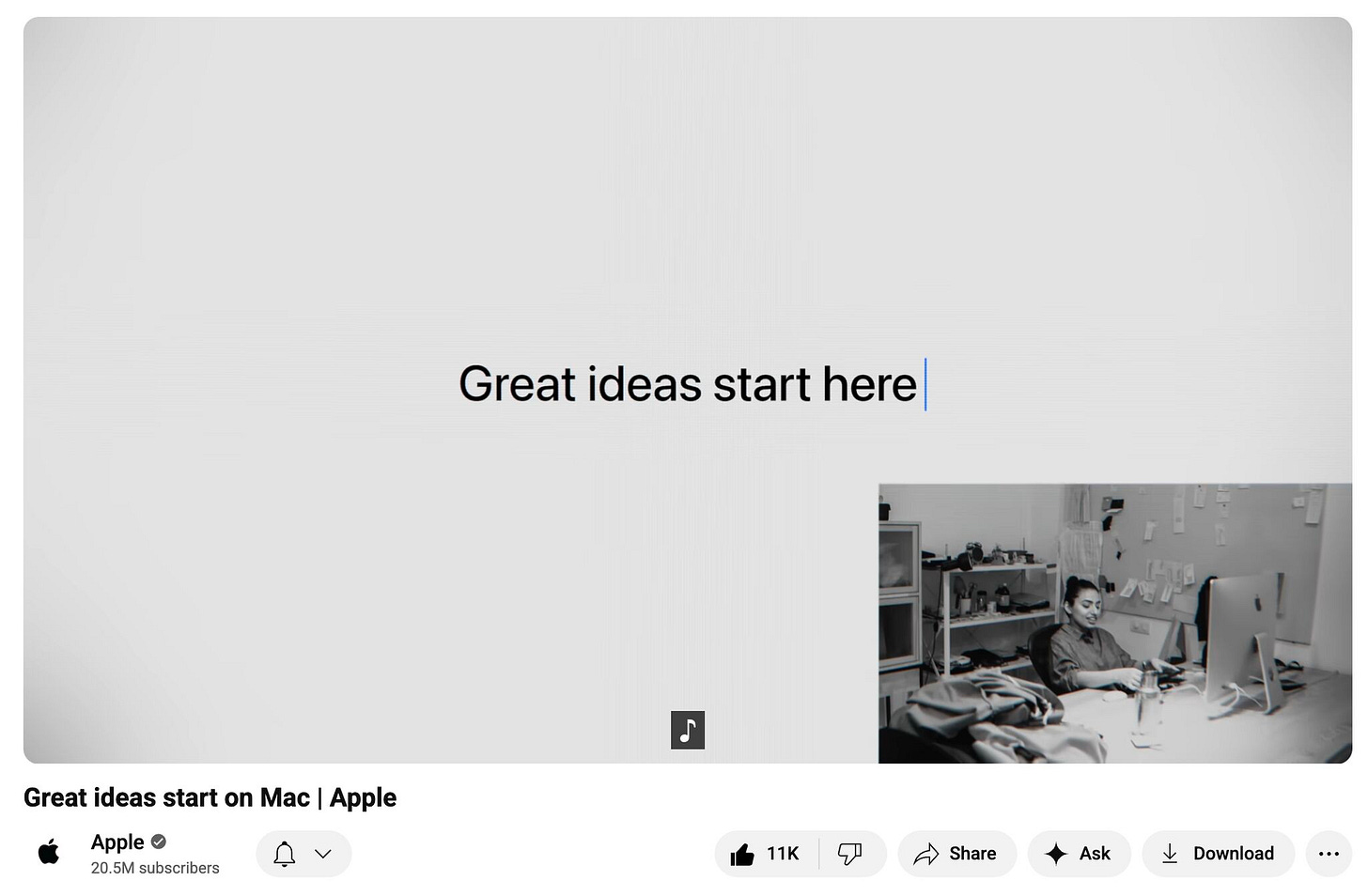
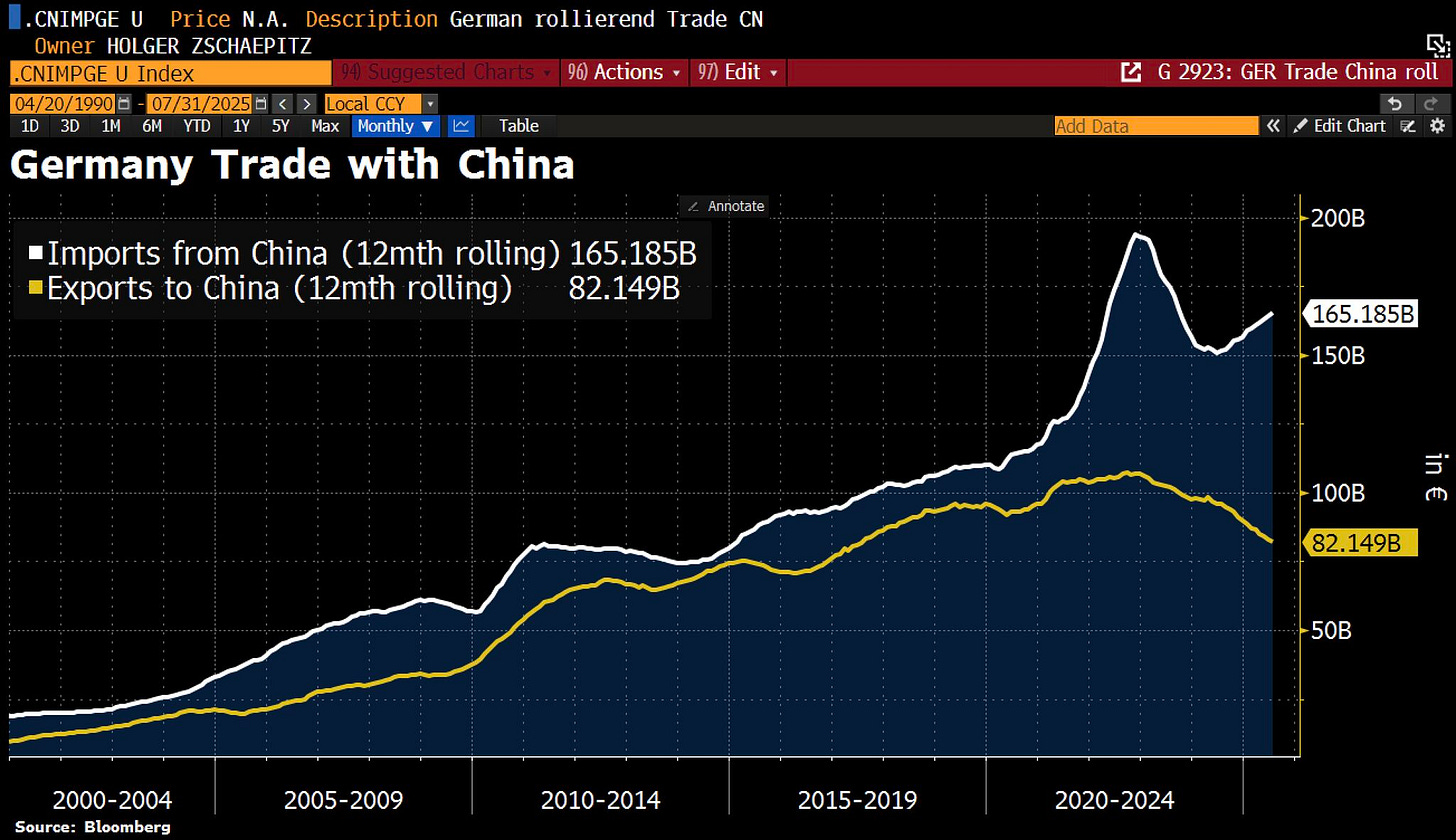
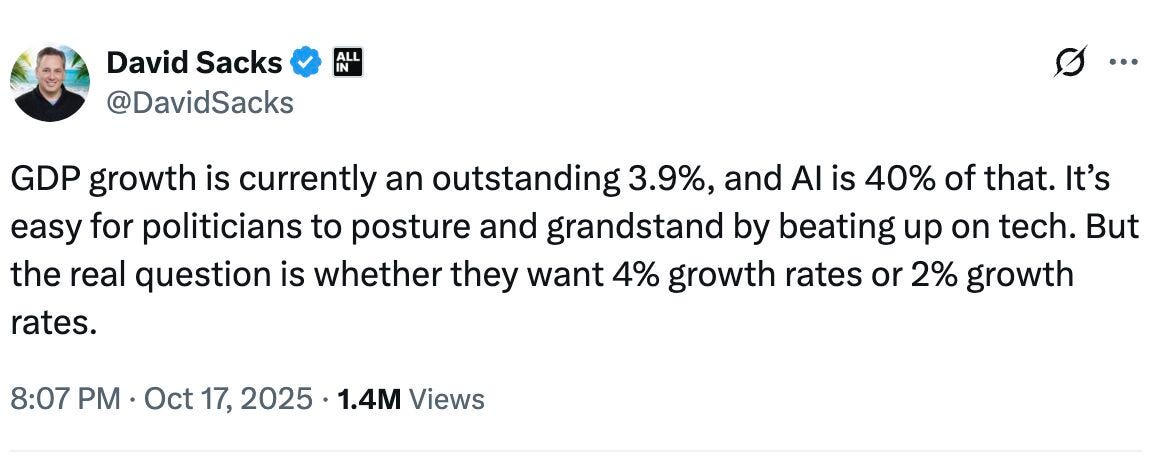
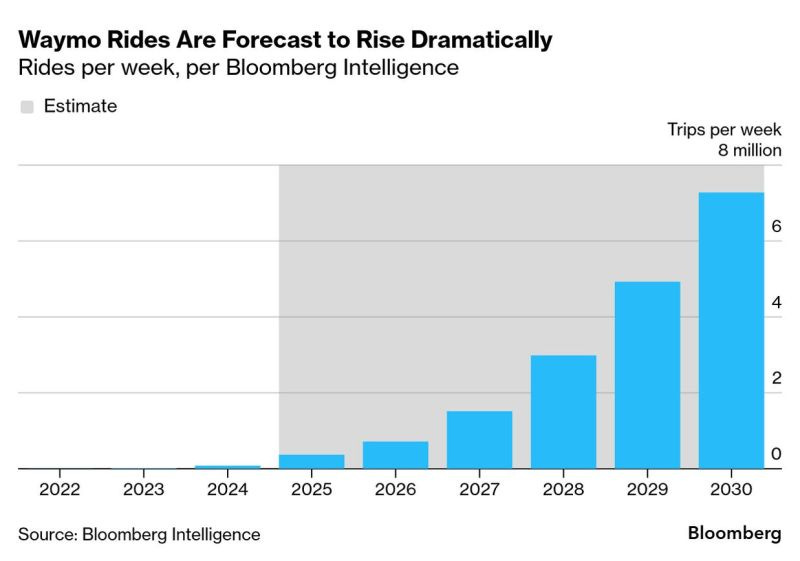
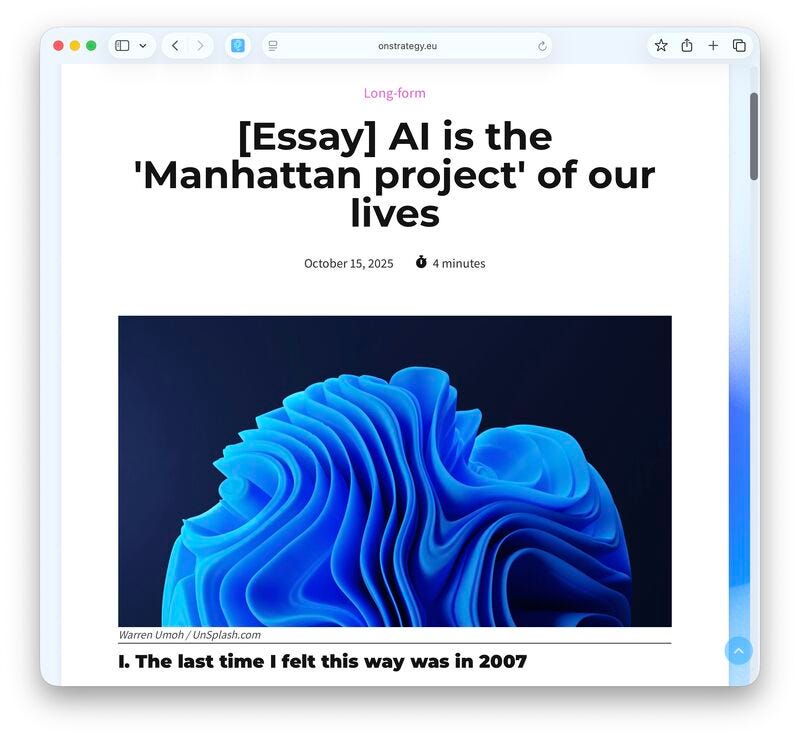
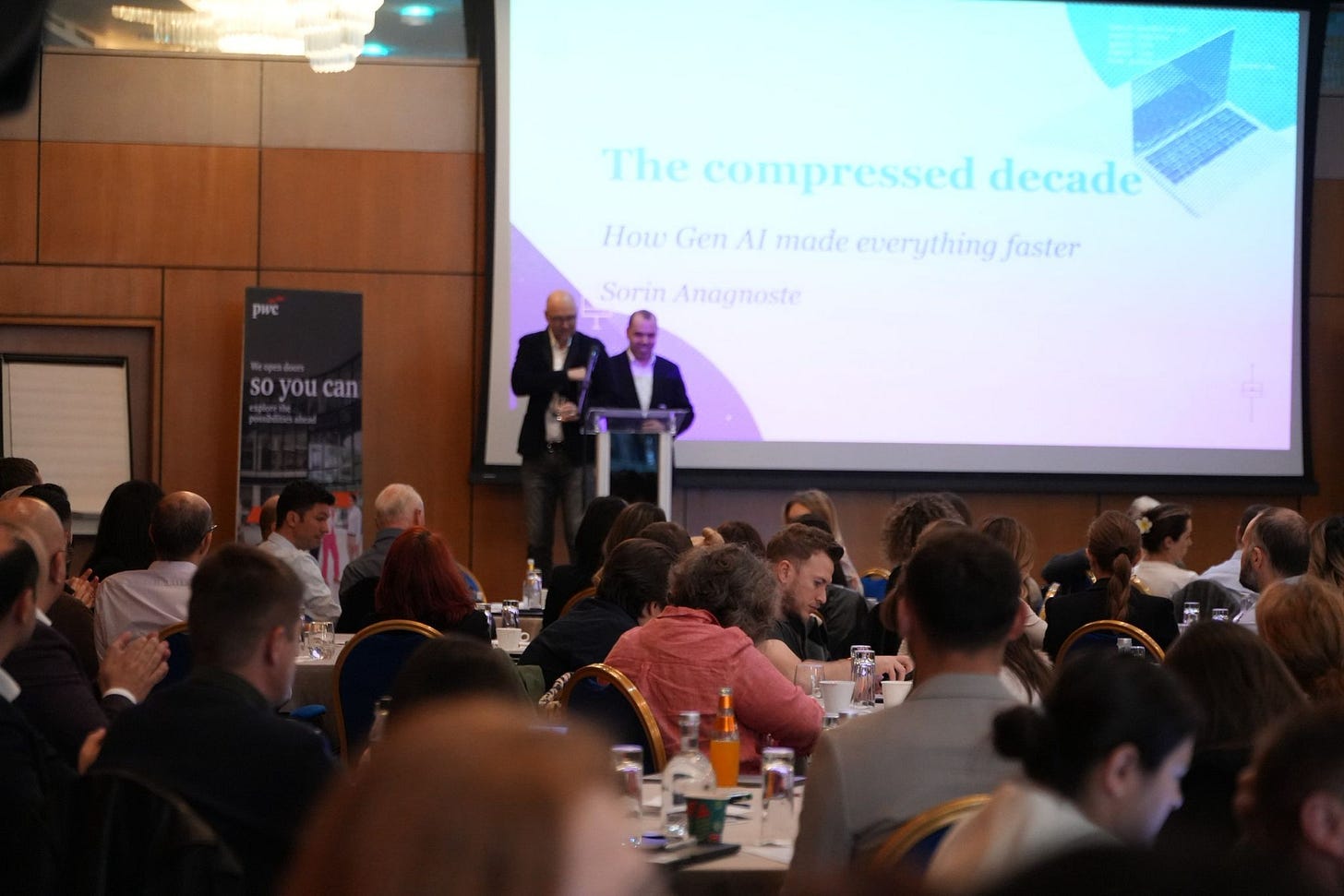
Hey, great read as always. Your insight into OpenAI's move to own the interface layer with Atlas is spot on. It makes me think about the privace implications and the subtle ways user agencey might evolve when an AI essentially becomes our operating system for intent.